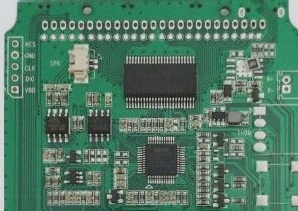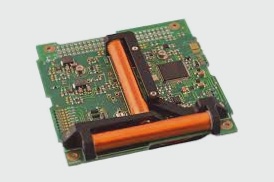Damage to flexible printed circuit boards (PCB) can stem from two primary sources: environmental factors and manufacturing processes. Collaborating with a dependable supplier can mitigate these risks and safeguard your flexible PCBs.
Environmental factors contributing to PCB damage include:
1. Moisture: Water infiltration through PCB channels can lead to failure. Moist conditions facilitate water contact, fostering mold growth that exacerbates PCB damage.
2. Electrostatic Discharge (ESD): Static electricity generated by fabric and carpet surfaces poses a significant threat to PCB integrity, eroding etching across the board.
3. Dust: Dust accumulation on PCB surfaces acts as an insulator, impeding heat dissipation and inducing thermal stress from high temperatures during electronic equipment operation.
4. Extreme Temperature: Both extreme cold and heat can deform the PCB substrate, resulting in disconnection and impedance of current flow.
5. Chemical Exposure: Chemical substances, including those present in cleaning products, can corrode PCBs over time, manifesting as smoke-induced degradation.
6. Pest Infestation: In storage areas like warehouses, rodents such as rats may damage PCB-equipped electronic devices, potentially incorporating improperly stored flexible PCBs into their nests or as chew items.
During manufacturing and handling, the following issues may lead to flexible PCB damage:
1. Physical Impact: Despite being more resilient than rigid PCBs, flexible PCBs still require protection from physical impacts. Dropping or bending can harm surface mounting assemblies and other components.
2. Track Damage: Various factors such as surges, lightning strikes, and metal dust contamination can result in track damage within flexible PCBs, compromising their wiring.
3. Defective Components: Faulty PCB components can impair board functionality, either by failing to provide adequate protection from heat or by succumbing directly to corrosion or power surges.
4. Design and Manufacturing Flaws: Careful design and manufacturing are crucial for ensuring flexible PCBs can withstand bending reliably. Inadequate circuit layout and materials may render them incapable of enduring the physical stresses associated with bending.
Environmental factors contributing to PCB damage include:
1. Moisture: Water infiltration through PCB channels can lead to failure. Moist conditions facilitate water contact, fostering mold growth that exacerbates PCB damage.
2. Electrostatic Discharge (ESD): Static electricity generated by fabric and carpet surfaces poses a significant threat to PCB integrity, eroding etching across the board.
3. Dust: Dust accumulation on PCB surfaces acts as an insulator, impeding heat dissipation and inducing thermal stress from high temperatures during electronic equipment operation.
4. Extreme Temperature: Both extreme cold and heat can deform the PCB substrate, resulting in disconnection and impedance of current flow.
5. Chemical Exposure: Chemical substances, including those present in cleaning products, can corrode PCBs over time, manifesting as smoke-induced degradation.
6. Pest Infestation: In storage areas like warehouses, rodents such as rats may damage PCB-equipped electronic devices, potentially incorporating improperly stored flexible PCBs into their nests or as chew items.
During manufacturing and handling, the following issues may lead to flexible PCB damage:
1. Physical Impact: Despite being more resilient than rigid PCBs, flexible PCBs still require protection from physical impacts. Dropping or bending can harm surface mounting assemblies and other components.
2. Track Damage: Various factors such as surges, lightning strikes, and metal dust contamination can result in track damage within flexible PCBs, compromising their wiring.
3. Defective Components: Faulty PCB components can impair board functionality, either by failing to provide adequate protection from heat or by succumbing directly to corrosion or power surges.
4. Design and Manufacturing Flaws: Careful design and manufacturing are crucial for ensuring flexible PCBs can withstand bending reliably. Inadequate circuit layout and materials may render them incapable of enduring the physical stresses associated with bending.




